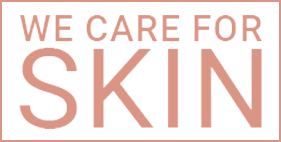Acne breakouts are a source of agony for most people. Though there are a plethora of anti-acne products in the market today, looking for the product that’s right for you can be overwhelming.
Many acne treatments differ in terms of their active ingredients. In this blog, we’ve rounded up acne-fighting ingredients and how they work to prevent breakouts.
What causes acne?
Acne occurs when sebum, the oily substance that acts as a lubricant for your hair and skin, and dead skin cells, block the hair follicles.
The skin condition is very common, affecting about 9.4 percent of people across the globe. In the Philippines, acne vulgaris affects an estimated 85 percent of people between the ages of 12 and 24.
While it’s not life-threatening and doesn’t pose a serious risk to your overall health, it can still be painful and has a significant impact on the social, emotional, and psychological well-being of affected individuals.
Some of the long-term complications of acne, particularly the severe type, are scarring and bacterial infection.
Acne-fighting active ingredients
Anti-acne products work in various ways and it depends on their active ingredients. Most of these products work by killing bacteria that cause acne, while others eradicate excess oil from the skin. In some cases, the ingredients also help in removing dead skin cells and promote the growth of new and healthy skin.
Though many of these active ingredients are found in over-the-counter products, it is important to consult with a dermatologist for a thorough assessment of your skin condition and which treatment will work best for you.
Here are some of the most common ingredients in acne products and how they work.
Benzoyl peroxide
Many acne products contain benzoyl peroxide, which is used to treat mild to moderate acne. It works by reducing the amount of acne-causing bacteria. By killing the bacteria that cause acne, it can reduce the number of whiteheads, blackheads, and larger pimples. As a result, it helps reduce the frequency of breakouts.
The good thing about benzoyl peroxide, though it helps reduce acne-causing bacteria, it does not cause antibiotic resistance. This ingredient can be found in topical treatments and cleansers.
Isotretinoin
Isotretinoin for acne is another promising active ingredient you need to look for in your anti-acne products. Also known as 13-cis-retinoic acid, and sold under the brand names Roaccutane and Acnetrex, among others.
Isotretinoin is intended for the systemic treatment of severe acne. However, this retinoid should be used with caution and a prescription from a licensed dermatologist. Furthermore, it should only be used as a last resort treatment if other acne treatments were not effective.
Salicylic acid
Salicylic acid is a common anti-acne ingredient in many skin products. It’s a beta hydroxy acid, which is effective in exfoliating the skin. It helps remove dead skin cells to prevent your pores from being clogged.
The ingredient is usually found in anti-acne products like moisturizers, creams, gels, and cleansers. Some of the side effects include mild stinging, skin irritation, and skin discoloration. Though you can buy products with salicylic acid over-the-counter, getting a prescription from a dermatologist is important.
Alpha hydroxy acids (AHAs)
Alpha hydroxy acids (AHA) are synthetic versions of acids from fructose and sugars from milk or sugar cane. The two most popular ones are glycolic aid and lactic acid, which work by removing dead skin cells and reducing inflammation. It also improves the appearance of acne scars by stimulating new skin growth.
Tea tree oil
Tea tree oil is a potent anti-inflammatory agent used to treat acne and reduce skin oiliness. Derived from Melaleuca alternifolia, a small tree native to Australia, tea tree oil contains antibacterial and anti-yeast properties. It helps treat acne because it has antimicrobial effects against Cutibacterium acnes, which are found naturally on the skin but can cause acne.
Furthermore, acne is a natural agent, making it a good ingredient for acne products since it’s not harsh to the skin. It also helps in fighting off whiteheads and blackheads, which can develop into pimples. Aside from fighting off acne, it can also help in reducing acne scars.
Retinol / Retinoids
Retinol is a type of retinoid, a vitamin A derivative that increases skin cell turnover rate by removing the top layer of the skin containing dead cells. It also helps boost new collagen and healthy skin growth.
It has been widely used in acne treatment because it works from the inside out, unlike other acne-fighting agents. Retinol is found in creams and gels, and sometimes, in combination with other active ingredients such as benzoyl peroxide.
Sulfur
Sulfur is also an active ingredient found in anti-acne skin products. It’s often used in combination with other ingredients, such as salicylic acid or benzoyl peroxide. The mineral reduces excessive oil and inflammation of the skin. Aside from that, it helps in exfoliation by removing dead skin cells.
Vitamin C
Also known as ascorbic acid, vitamin C is a potent antioxidant and contains anti-inflammatory properties. This is an active ingredient against acne because it reduces swelling, redness, and irritation in acne-prone skin. Apart from this, vitamin C’s antioxidant properties shield the skin from harsh environmental elements like pollution and sun damage, making it healthy and glowing.
In a nutshell
Treating acne is not a one-time-big-time endeavor, you need to be patient in adhering to your regimen. Make sure to consult with a licensed dermatologist to make sure you receive the right care.
Remember, these active ingredients may also harm your skin if they’re not used properly. With the proper guidance and instructions from a doctor, you’ll be able to overcome your acne, giving you confidence and healthy, glowing skin.


